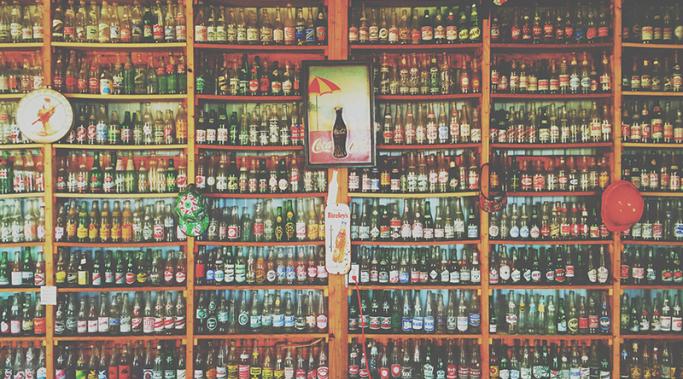Blogs
Hi, I’m Taylor Arthur, and I am so excited to be writing for Mental Illness in the Family here on HealthyPlace. Unlike the other authors of this blog, I am the mentally ill member of my family. My high school sweetheart, Jack, and I had no idea when we were married that I had a serious mental illness, and my illness almost ended our marriage (Bipolar Spouse: Coping With Bipolar Husband, Wife). But 16 years later, we are balancing bipolar disorder, marriage, careers, and children in a life not far from what I imagined on our wedding day.
Stop being ashamed of who you are if you want to build self-esteem. Everyone has things they don't like about themselves; however, being ashamed of who you are because of them is destructive.
Perhaps life isn’t how you planned and you don’t have the job, money, education, talents, looks, partner, friends or family you had hoped for. You might be ashamed of having an illness, condition or disability, or perhaps you're struggling with mental health issues or mental illness stigma. Alternatively, your personality, talents or interests might be different to others around you, causing you to feel like you don’t fit in. However, shame is toxic to your wellbeing and self-esteem. It’s important to stop being ashamed of who you are to build self-esteem.
Schizophrenia and obsessive thinking, which is a symptom of obsessive-compulsive disorder (OCD), rarely present together (although there is a noticeable comorbidity between schizophrenia and OCD). However, I do not have OCD and my schizophrenia symptoms never included obsessive thoughts.
At least not until I was put on an antipsychotic medication with a rare side effect of causing obsessive thoughts. Then, not only did I have to deal with symptoms like hearing voices, but my generalized anxiety disorder morphed into a deep well of obsessive thinking with no bottom. Schizophrenia and obsessive thinking is a tough pair to deal with.
Do you know how to develop a safe place? Recently my therapist and I began EMDR for PTSD (EMDR stands for Eye Movement Desensitization and Reprocessing Therapy). We started by building a safe place--a place for me to go to when traumatic memories become overpowering. This taught me how to develop a safe place--something every mental health consumer should have.
Developing a sense of personal safety and establishing boundaries is a very important when dealing with my symptoms of posttraumatic stress disorder (PTSD). I can tremendously reduce my anxiety and hypervigilance through creating a safe space for myself. I do this by establishing boundaries as part of my PTSD recovery.
Caffeine is a drug and it creates dependency, but are caffeine addiction and dependency real disorders? Caffeine intoxication and caffeine withdrawal syndrome are included in the new Diagnostic and Statistic Manual of Mental Disorder (DSM-5) of the American Psychiatric Association. However, caffeine-related disorders is treated separately from substance abuse disorders. Should it be? Should caffeine addiction and dependency be separate from substance abuse disorders?
We tend to think of mental health stigma as a blanket statement, but the reality of the situation is that it’s really not. Different mental health disorders face different versions of mental health stigma. I came to this conclusion recently as I realized that although I’ve overcome the stigma I felt for Excoriation (Skin-Picking) Disorder (dermatillomania), I still let the stigma of my depression and anxiety overcome me.
I write a lot for people who have binge eating disorder, but how do you support someone with binge eating disorder? Unfortunately, there are no hard and fast answers. Everyone is an individual who is going to have their own needs and desires. But being respectful, listening, and not judging will be the key to understanding mental illness from your loved one's point of view. How to support someone with binge eating disorder is a very personal matter.
Much has been written about the damaging effects of social media on relationships, including the breaking up of marriages and dissolution of friendships. Obviously, the behaviors that lead to these situations are likely to be harmful for people recovering from mental illness. However, social media relationships can be good for mental illness recovery in certain situations. It is important to realize when those healthy relationships occur and how to take advantage of them.
I once heard an exasperated man lament, "My depression treatment makes my anxiety worse!" He's not alone in this frustration, and neither are you if you've found that treating depression worsens your anxiety.










I believe she will only be able to rid herself of her demons, and hopefully her BPD as well, when she's ready to confront the abuse of her father. If she can put the blame where it belongs, she may stop projecting that victim/perpetrator cycle on the present men in her life. These demons are a metaphor for the purgatory she has created for herself. That reality has consequences in the real world, but it need not be real in the tangible sense. Exorcising her demons will require the expenditure of real physical energy and probably the destruction of aspects of her personality. If this ever happens, and it's possible but not probable, then these demons will evaporate. They are only as real as one's personality is real. In short, reality is not the question, it's what you make of the things you feel to be real.